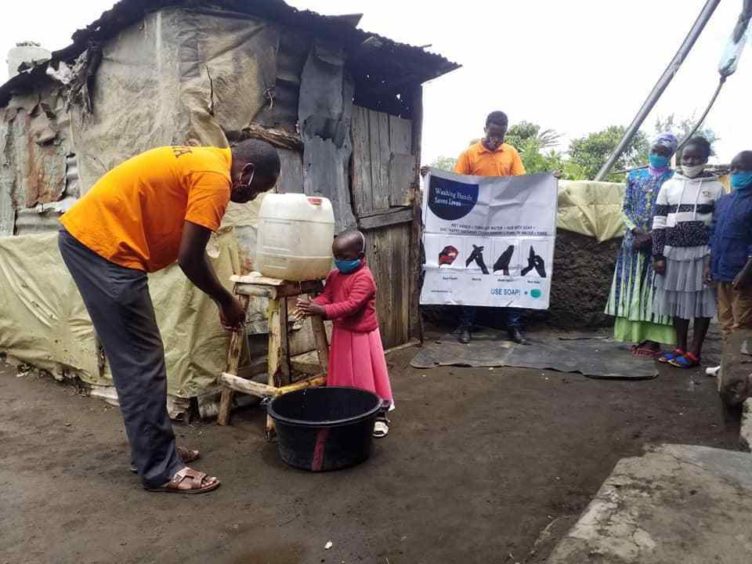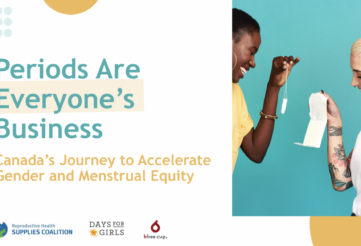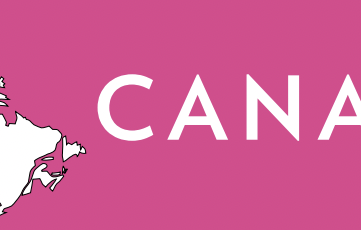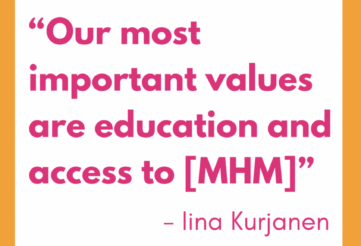WASH and the Menstrual Equity Movement

What does it take to manage menstruation safely, effectively and with dignity?
Period products and health education are both critical – and well recognized – factors. But there’s another pillar of menstrual equity that often evades the spotlight: water, sanitation and hygiene (WASH).
WASH is a global development sector that encompasses clean and sufficient water, waste management and hygiene facilities. Adequate WASH is vital to global health and disease prevention, yet countless people do not have access to this basic human right. The statistics are staggering: more than half of the world’s population lacks access to proper sanitation, 2.2 billion people cannot access clean drinking water, 3 billion people cannot access hand-washing stations with soap, and 673 million people live without even the most basic of toilets.
These inequities pose a unique and heightened challenge for women and girls, who rely on sanitation infrastructure to manage their menstruation each month.
Water, Sanitation, Hygiene and Menstrual Health
WASH plays a foundational role in a person’s ability to learn, work, play and fully engage with the world during their period. When the following conditions are met, women and girls can safely change, clean and dispose of menstrual materials at school, at work or elsewhere in their communities – and live their lives without menstruation getting in the way.
- Clean water is needed to wash reusable period products, hands and bodies.
- Sanitation facilities are needed to discreetly throw away single-use period products and other disposable materials.
- Safe, private, clean spaces are needed to change menstrual products at school, in the workplace and in other public/community settings.
Yet, when these resources are lacking, women and girls may have no choice but to stay home during their periods – driving up absenteeism and dropout rates and perpetuating the cycle of gender inequity. Conversely, those who do attend WASH-deficient work or school environments on their period run the risk of public shame, stigma and harmful infections like UTIs (from insufficiently cleaned or infrequently changed period products).
Bottom line? People with periods have specific sanitation needs that must be considered, addressed and prioritized by Menstrual Health (MH) and WASH leaders alike. Our ability to advance menstrual equity for every girl, everywhere depends on it.
Periods (and WASH) in Pandemics
COVID-19 has illuminated the urgent need for collaboration between the WASH and MH sectors like never before.
With the pandemic exacerbating global period poverty, menstrual health leaders have doubled down on efforts to reach menstruators in marginalized communities around the world. Those working across multiple sectors are witnessing the crucial need for menstruator-friendly WASH facilities for vulnerable groups hit by the pandemic – especially in humanitarian aid contexts.
That includes countless reports from the Days for Girls global network.
On Menstrual Health Day, we hosted a Periods in Pandemics virtual panel discussion that featured program officers working in refugee camps in Bangladesh, Lebanon, Rwanda, and Uganda. Every single panelist identified lack of WASH infrastructure as a primary challenge in their work! Together, they advocated for upgraded toilet facilities that are gender-specific; safe, secure and well-lit; clean and hygienic; conveniently located; and equipped with clean water, soap and trash receptacles.
Recommendations like these underscore the need for collaboration between leaders, policymakers and experts in both the WASH and MH sectors. Through close coordination and cross-sector resource sharing, we have the power to improve menstrual health outcomes by improving sanitation in vulnerable communities worldwide.
Prioritizing Menstrual Health
Universal access to WASH is a human right and a key Sustainable Development Goal. Yet women, girls and menstruators continue to suffer disproportionately from inadequate sanitation, and often cannot access toilets that meet their needs.
If we want to eliminate period poverty on a global scale, we must prioritize WASH infrastructure the same way that we prioritize period products and health education – and invest in sanitation facilities that are tailored to the distinct needs of menstruators.
Only then can we hope to achieve holistic, sustainable menstrual health for all people with periods.









